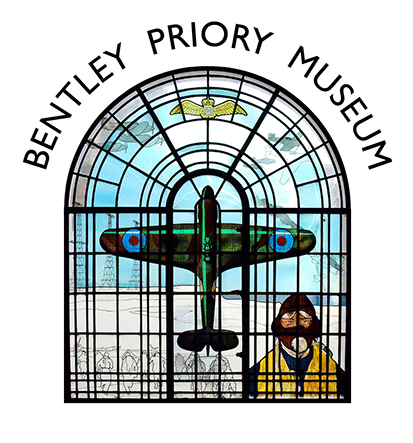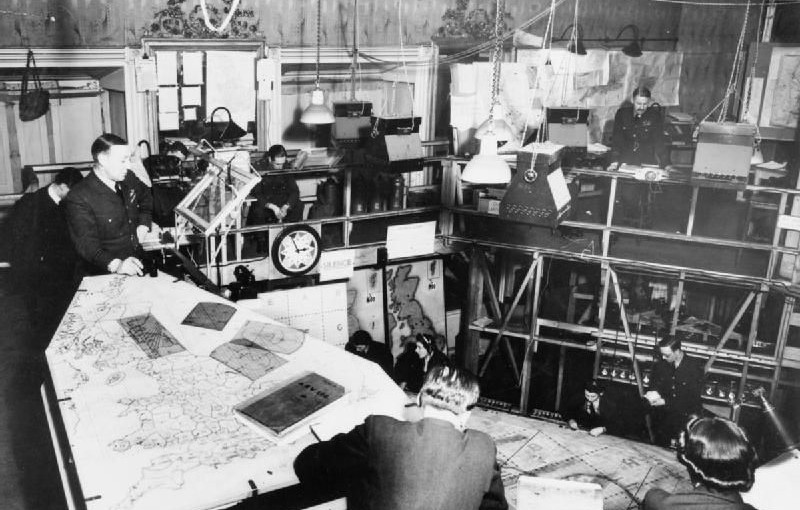The Start of World War II
On 1 September 1939, Nazi Germany invaded Poland. Two days later, Britain and France declared war on Germany, marking the official start to World War II. After the defeat of Poland, Germany invaded Denmark, Norway, Belgium, Luxembourg, the Netherlands and France.
Air Chief Marshal Hugh Dowding argued that Fighter Command’s involvement in defending France against Nazi Germany risked the future defence of Britain:
“If the Home Defence Force is drained away in desperate attempts to remedy the situation in France, defeat in France will involve the final, complete and irredeemable defeat of this country.”
After France fell in June 1940, Germany’s attention turned to Britain.
”What General Weygand called the Battle of France is over, the Battle of Britain is about to begin.” British Prime Minister, Winston Churchill
On 30 June 1940, Hermann Goering – Head of the German Luftwaffe, gave the order to draw the RAF into battle.
The Battle of Britain, 10 July – 31 October 1940
The Battle of Britain was fought above the skies of Britain, between the RAF and the German Luftwaffe. Had British and Allied aircrew not defeated the Luftwaffe, it is likely that Germany would have invaded Britain.
The Battle of Britain is often described as having 4 phases:
Phase 1: 10 July – 12 August 1940 Attacks on Channel Shipping
The Luftwaffe attacked shipping conveys in the English Channel and Channel ports and coastal radar stations on the South coast. There were widespread night-time raids all along the coast.
16 July: Adolf Hitler issued Directive No. 16, calling for preparations to be made for Operation Sealion – the invasion of Britain. Hitler demanded that ”the British Air Force must be eliminated to such an extent that it will be incapable of putting up any sustained opposition to the invading troops.”
Phase 2: 13 – 18 August 1940 Attacks on Airfields and Radar Stations
The Luftwaffe planned to destroy the aircraft of Fighter Command, either on the ground or in the air. Airfields and radar stations became the focus of German bombing. The raids destroyed valuable aircraft and damaged airfields, making it difficult for aircraft to operate. The airfields of No.11 Group in the south east of England suffered the heaviest attacks. Small civilian airfields were used in emergency.
13 August: ‘Eagle Day’ (Adlertag): The Luftwaffe launched intense raids on RAF airfields, focusing their attacks in the south east of England.
18 August: The Hardest Day: Fierce air battles between the Luftwaffe and the RAF, with severe loss of RAF aircraft on the ground.
Phase 3: 19 August – 6 September 1940
The Luftwaffe continued to bomb towns, cities and airfields across the south coast of England, the Midlands and the north east.
20 August: British Prime Minister, Winston Churchill, acknowledged the enormous gratitude to British & Allied aircrew: ”Never in the field of human conflict has so much been owed by so many to so few.”
24 August: During night bombing of Britain, a lost German bomber formation dropped bombs on London by mistake.
25 August: In retaliation of the bombing of London, the RAF launched their first bombing raid on Berlin.
31 August: Fighter Command suffered its heaviest losses to date. 303 Squadron (Polish Squadron) – based at RAF Northolt – became operational.
Phase 4: 7 September 1940 – 31 October 1940
Mass bombing raids were launched against London, and continued against other major British cities.
15 September: Battle of Britain day. The Luftwaffe launched its heaviest bombing raids on London. Fighter Command successfully fought the attacking aircraft, resulting in heavy Luftwaffe losses.
17 September: Hitler postponed the invasion of Britain (Operation Sealion)
26 September: The Spitfire factory at Southampton was attacked and destroyed.
October: The German Luftwaffe focused their bombing raids on British cities at night, to reduce Luftwaffe casualties. Coastal towns, airfields and other military targets were attacked during the day.
31 October: The German Luftwaffe were denied air superiority by the RAF. The Battle of Britain ended.
 What’s On
What’s On Opening Hours & Admission
Opening Hours & Admission

